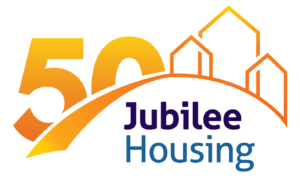Why Justice HousingSM?
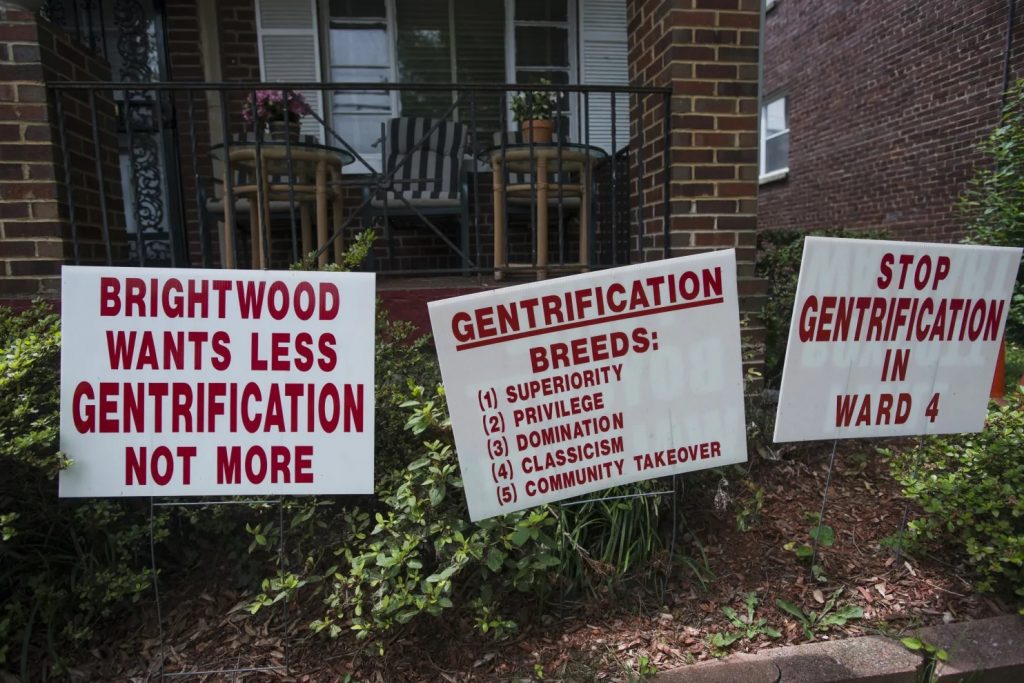
In an era of uncertainty, one thing is sure: D.C. is an expensive place to call home, and it’s only getting worse.
Gleaming, new development dots nearly every community as luxury condos and high-end rentals explode out of lots that once housed working-class families. Locally owned businesses are getting priced out by gentrification to make room for national chain stores. New residents flock to the city—about 800 a month—even as its economy remains largely dependent on the budgetary caprices of the federal government. What housing remains affordable is increasingly further away from the city’s core commercial districts.
The debate over D.C.’s fortunes as an en vogue place to live for people with high incomes will no doubt continue unabated. Meanwhile, a more immediate and impactful debate affects city residents who aren’t sure where they might end up next. Like many of America’s great cities, D.C. is in the midst of an acute housing affordability crisis that is forcing out many long-time residents.
As hundreds of new residents settle in D.C. each month, residents who have been here for generations are feeling unwelcome in the city they call home and are missing out on economic advantages, as the city prospers. Many D.C. residents juggle long commutes to jobs—sometimes two and three jobs—where they provide critical services to our communities, but don’t receive living wages.
Despite hard work and dedication, 60 percent of these residents come home to a house or apartment that costs more than half of their monthly take-home pay. Studies show some families in the D.C. area are getting by on less than $24,500, and after they pay rent and buy food, these families have little to no income left to put away for medical emergencies or a college fund or the rainy-day savings fund we all know we need but sometimes neglect.
Something’s got to give for these individuals who are already giving so much.
For more than 40 years, Jubilee Housing has provided justice housingSM to D.C. residents with very low to moderate incomes. Justice housing is high-quality, deeply affordable housing with nearby and on-site programming in resource-rich neighborhoods. Justice housing seeks to address the systemic and historical inequities that have left too many of our neighbors without access to the ingredients we all need to thrive.
• Providing deeply affordable homes—homes that residents are proud to call theirs—is the foundation. Housing stability can affect a person’s wellness. High-quality housing can alleviate both physical and mental stress, allowing residents to focus on the circumstances that bring them joy, from spending time with children to pursuing hobbies.
• Supportive services help residents on their paths to wellness, careers, college, and financial stability. Having a team of trusted, knowledgeable people ready to offer guidance opens new opportunities.
• Thriving neighborhoods offer conveniences that uncomplicate and enrich residents’ lives. Restaurants, grocery stores, art spaces, banks, doctors, and parks should be accessible to everyone—not just to those who can afford to pay sky-high rent.
Success—including future income, college attendance, and the probability of having a teenage birth—is directly tied to where a person lives, down to the city and ZIP code. In a world that feels increasingly small, it’s easy to forget how physical space both separates us and influences every decision and opportunity in our day.
That’s why Jubilee Housing has undertaken a bold, new five-year plan for justice housing, “Justice Housing in Action,” (see the lead story in this newsletter) to create inclusive, equitable communities with abundant opportunity.
We want longtime residents who’ve made D.C. a unique, vibrant community to feel like the city they cherish values them in return. In justice housing, every individual is respected and valued for the role they play in building a strong community. Families facing the greatest barriers—including those with the fewest assets—can live successful lives.
Investing in Justice
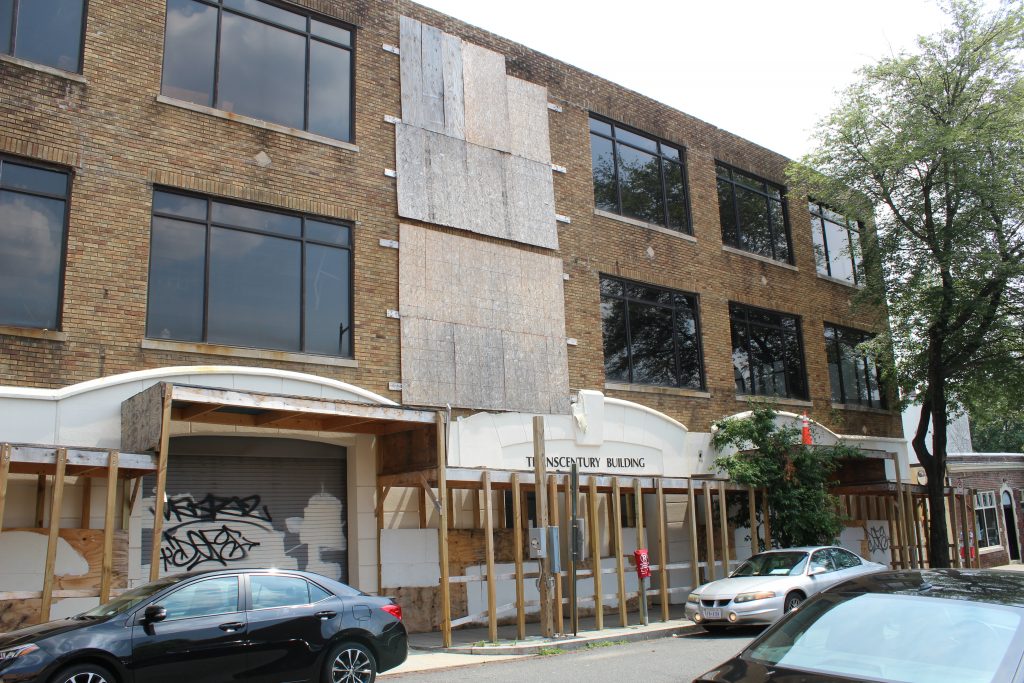
As Jubilee Housing has fought to address D.C.’s growing inequity through creating more justice housingSM, the organization’s efforts have been hampered by the increasing pace and number of properties being purchased for conversion to market-rate rentals or condos. To overcome this trend, Jubilee recently launched the Justice Housing Partners Fund , which will provide quick-strike acquisition capital for bridge financing, enabling Jubilee to better compete against market forces.
Already, the Share Fund, a donor-advised fund of the Community Foundation for the National Capital Region, has led the way with a $1 million match investment, which has inspired institutional investors. United Bank, for example, has committed $250,000, and, to date, Jubilee Housing has raised more than $2 million in commitments.
Creating the Fund is the first tactic for delivering Goal 2 in “Justice Housing in Action,” Jubilee’s five-year plan for justice housing (see the lead story in this newsletter). Goal 2 calls for Jubilee to increase the number of justice housing properties in Jubilee’s portfolio by 30 percent.
Jubilee will use the $5 million it raises through investments in the Fund to purchase three or four properties that can become future justice housing communities. Justice housing is deeply affordable, coupled with onsite or nearby opportunities that can help residents live successful lives, and located in resource-rich neighborhoods like Jubilee’s core communities of Adams Morgan, Columbia Heights, and Mount Pleasant. Jubilee already has the first two new properties under contract.
These areas’ proximity to good schools, public transportation, grocery stores, and banks have led to rapid gentrification and real estate value escalation. They are now among the most competitive markets in the city, with developers making all-cash offers for properties and foregoing contingencies as well as due diligence.
Consequently, D.C. residents with few assets are being left out of the city’s growing prosperity, as they are forced from their homes and into concentrated areas that lack the resources and opportunities we all need to thrive. Yet research demonstrates that those who remain in or relocate to a resource-rich community experience increasingly better employment and wage outcomes as well as decreases in the likelihood of needing government programs, such as TANF.
Under the Justice Housing Partners Fund model, a two- to three-year investment leverages permanent financing that yields a social return for multiple generations of Washingtonians with very low incomes. Jubilee’s 45 years of experience providing affordable homes and services in its core neighborhoods and track record of zero defaults or losses for investors makes the Fund is a winning proposition all around.
In making more justice housing a reality, Jubilee is bridging the prosperity gap in D.C. For more information on how you or someone you know can invest in the future of our city and its residents, contact Rebecca Ely at rely@jubileehousing.org. This Fund will create returns from which we all benefit.
Learning the Pulse of Jubilee Residents
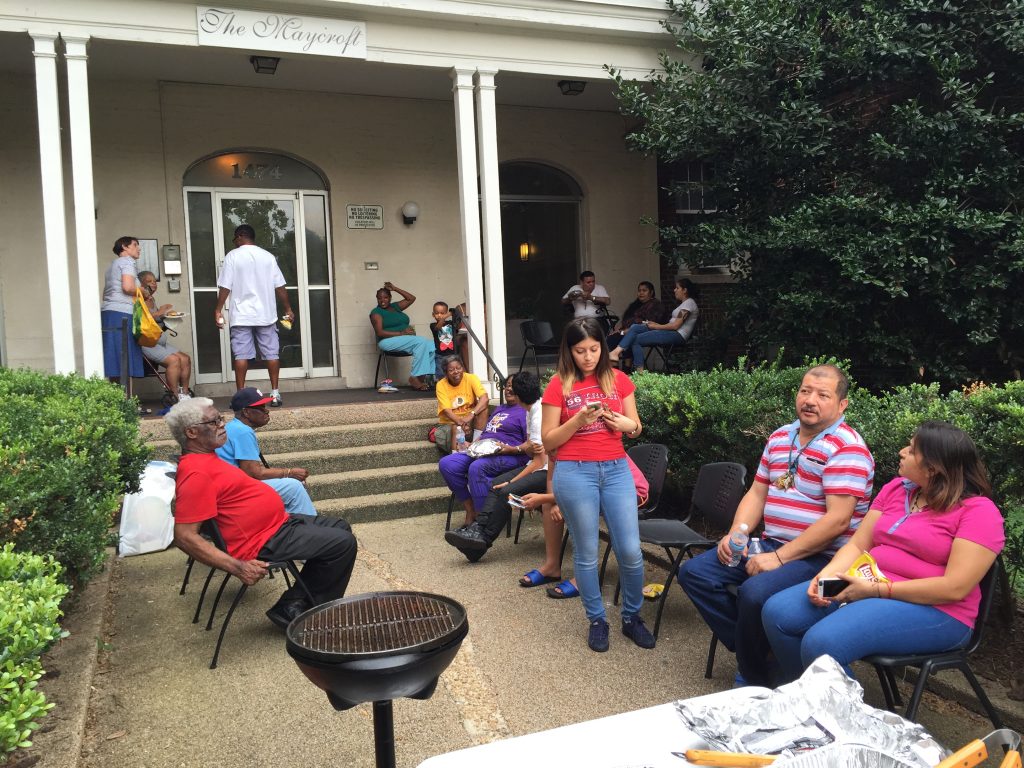
Jubilee Housing is enhancing the way it carries out its mission, and it starts with more and better listening to Jubilee residents.
Even before Jubilee launched its new five-year plan, “Justice Housing in Action,” the organization already was attacking Goal 1 of the plan: Create a resident centric experience that supports individuals and families in Jubilee communities in achieving success through justice housingsm. Jubilee undertook its first-ever resident survey, in which an impressive 80 percent of Jubilee Housing households participated.
The survey was designed to enable Jubilee to better understand the life circumstances of Jubilee residents—for instance, whether they can pay their bills each month and are able to save—and the kinds of supportive programming that could help them reach their goals.
Findings from the survey are informing changes to services Jubilee Housing offers and set the stage for more in-depth opportunities to hear from residents.
“The main thing we learned from the resident survey is that we need to make listening a permanent method of operating,” said Jubilee Housing Executive Director Jim Knight. “We are building practices that will enable us to perpetually listen.”
Jubilee is now conducting deeper, follow-up discussions with Jubilee Housing parents. Observations from this research will inform the design of future programming to support Jubilee Housing families and youth. Jubilee expects to draw conclusions from these listening sessions in late July.
Meanwhile, the organization already has started to adjust its work based on the original survey research. For instance, one-third of residents said they could use food assistance and many requested that Jubilee establish a food pantry, where they occasionally could pick up healthy food for free. Reflecting the concern with food security, a significant majority of residents requested Safeway—versus Target or Best Buy—gift cards, which Jubilee offered them for sharing their time and information. Consequently, Jubilee is working on opportunities to provide residents with tips for preparing healthy, low-cost meals and the ingredients to create them. And, the renovated Maycroft, will feature a Lobby Market, by Martha’s Table, where neighborhood families can shop for healthy food at no cost.
“We’re redesigning the way we relate to the resident community,” Knight said. “The survey is a first pass.” Jubilee expects to conduct a second resident survey in late 2019.
A Win for Deep Affordability
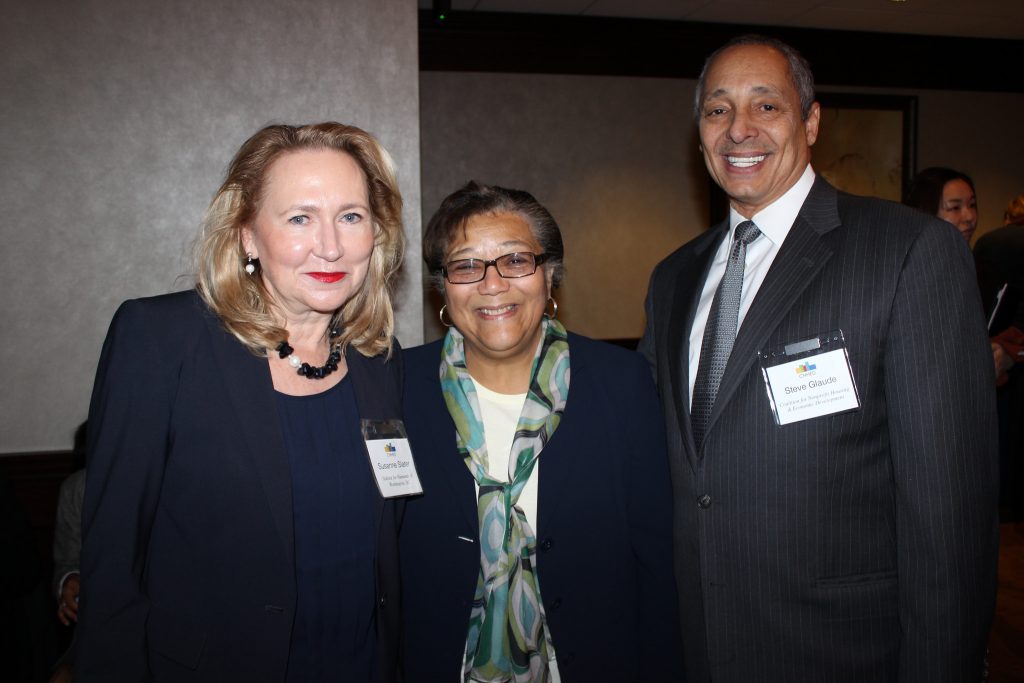
Sustained outreach to D.C. City Council members by Jubilee Housing, the Coalition for Nonprofit Housing & Economic Development (CNHED) and other non-profit developers paid off for D.C. residents when the Council voted recently to increase 2019 funding for the Local Rent Support Program (LRSP).
Jubilee and its partner organizations had been concerned that Mayor Bowser’s Fiscal Year 2019 budget only provided LRSP dollars for specifically designated uses, leaving a gap for projects seeking to couple those dollars with D.C. Housing Production Trust Fund (Trust Fund) investments.
Jubilee and its partners sought an increase in FY 2019 LRSP funding to be able to create more homes affordable to city residents with extremely low incomes. Jubilee hoped to tap future LRSP dollars to purchase future justice housing properties, as part of its five-year strategic plan for justice housing (see the lead story in this newsletter).
Two-thirds of the units in Jubilee Housing’s buildings are affordable to households making extremely low incomes. Jubilee matches LRSP dollars with investments from the Trust Fund to achieve that deep level of affordability.
“Deep affordability is just not feasible without an operating subsidy,” said Jim Knight, Jubilee Housing’s executive director. “In higher rent buildings, more expensive units can sometimes cross-subsidize a few units affordable to residents making 30 percent of area median income or lower. In buildings like ours, where two-thirds of the units are deeply affordable, that’s not possible,” he said.
Following the persuasive lead of CNHED, members of the Jubilee Housing community wrote letters, made calls, and held meetings with council members to advocate for the additional LRSP funding.
The Council approved $3.5 million for non-designated LRSP purposes. “Producers of affordable housing, like Jubilee, can now put together the funding needed to build homes that are available to families before they reach shelters or the streets,” Knight said.
